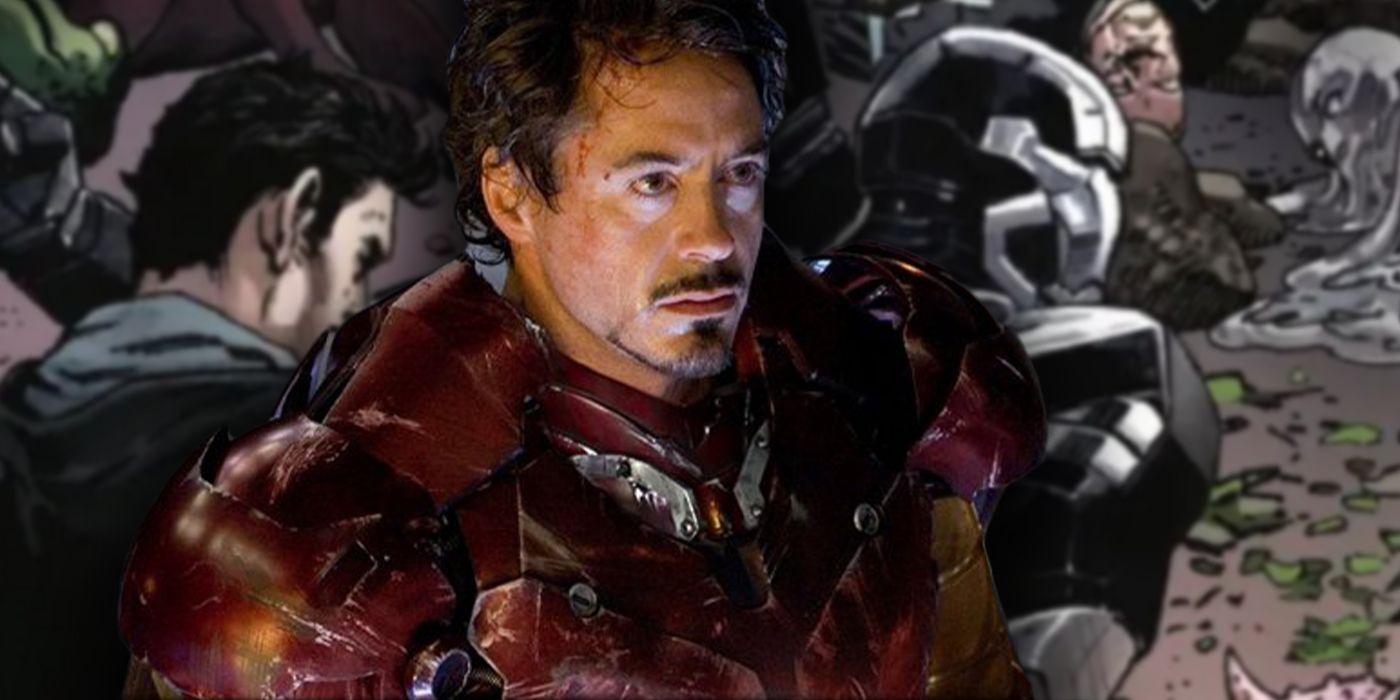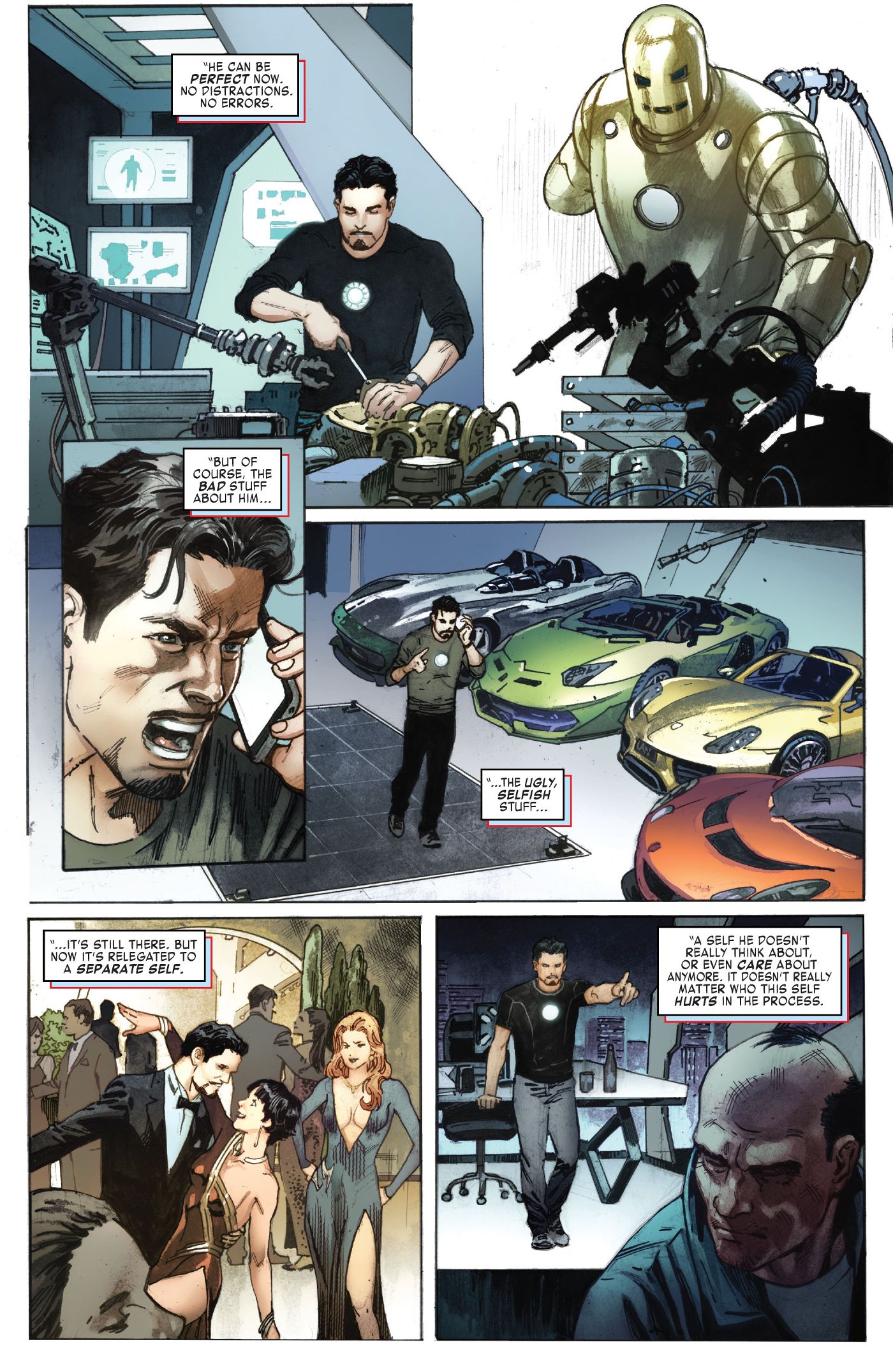Warning: Contains spoilers for Iron Man #18
Why does someone decide to become a superhero in the Marvel Universe? It could be idealism, a sense of justice, a feeling of responsibility, but the answer is actually much darker, and a dialogue between Tony Stark and Patsy Walker in Iron Man #18 by Christopher Cantwell, Lan Medina, and Frank D'armata explains it perfectly.
In recent Iron Man stories, Tony Stark has tried to stop Korvac, the android from a future timeline, from infiltrating Galactus' mothership and tapping into the source of the Power Cosmic. When Tony fails his only choice is to follow Korvac and acquire the same power, turning into the Iron God. Nearly omnipotent, Tony however is still dragged down by his past, especially his relationship with his father Howard. Iron Man turns every person in New York into a Stark-level genius to "make the world a better place," but when his closest friends confront him for his abuse of power, things take a turn for the worse. Unable to see the errors in his ways, Tony kills his friends and foes alike, leaving only his recent love interest Patsy Walker, aka Hellcat, alive. After realizing the terrible thing he has just did, Tony and Patsy go into a "headspace," an imaginary scenario taken from memories, where they have a revealing conversation.
Tony is one of the smartest people in the universe, an accomplished businessman, a beloved hero who saved Earth many times, and yet, despite all that, he is still stuck in his past. He is constantly thinking about the influence his father has on him and as a result, he is unable to really move forward. Iron Man is constantly burdened by the idea that he is somehow unable to reach his full potential: he is and will always be a disappointment to his father, even now that he has become a god. When Patsy explains that her mother also had unrealistic expectations for her, Tony uses the story of Dr. Jekyll and Mr. Hyde as a powerful metaphor for what being a hero means to him. The same reasoning, however, can be applied to the majority of Marvel's superheroes.
Jekyll created Hyde to get rid of his flaws, the weaker parts of himself. By doing that, he can become a "paragon," and that's the same thing that Tony did when he created Iron Man. A hero is, by definition, perfect, so it answers all the expectations that Tony had for himself, which were actually coming from his father Howard Stark. However, the hero does not erase the man. The flaws are still there, because that's what being human is all about, but now they are just relegated to a "separate self," the man behind the mask. The hero has to sacrifice the human, make him the receptacle of all his flaws, but this allows them to fester beyond control. That's what Tony did, and why Iron Man is still struggling with all these issues, including alcoholism and an unhealthy relationship with his friends, even after years of being a (supposedly) successful superhero.
This deep analysis could be applied to superheroes in general. Building a new identity, striving to be a paragon, acting under the constant pressure of expectations: these things are not motivated necessarily by ideals, but by a deeply troubled psyche. Heroes, in the end, are flawed humans who try to hide (or get rid of) their weaknesses by building alternative personas that are apparently perfect, but as Iron Man proves, that perfection is a ruse. It's a powerful metaphor and also the natural consequence of Marvel's "superheroes with super problems" trademark concept that, if truly developed, can reveal some very dark truths about Marvel Comics' beloved heroes.


